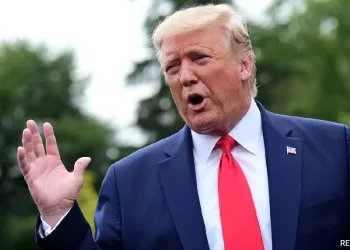Elon Musk’s social media platform, X, is facing accusations from the European Union (EU) for allegedly breaching its online content regulations. The EU’s tech regulator has expressed concerns that accounts with the platform’s “verified” blue tick could mislead users into believing their identities are authenticated, despite the fact that anyone can pay for this verification.
The investigation, initiated under the EU’s Digital Services Act (DSA), uncovered evidence of “malicious actors” exploiting the verification system. If found in violation, X could face fines of up to 6% of its global annual revenue and may be compelled to alter its operational practices within the EU.
Musk reacted sharply, labeling the DSA as “misinformation” on X. He criticized the regulations as a form of “censored speech,” which he deems unacceptable.
X’s CEO, Linda Yaccarino, defended the platform’s practices, stating, “A democratized system, allowing everyone across Europe to access verification, is better than just a privileged few being verified.”
The findings stem from a seven-month investigation under the DSA, which mandates large tech firms like X to take proactive measures against illegal content and to protect the public. Other companies, including ByteDance’s TikTok, AliExpress, and Meta Platforms, are also under scrutiny.
The EU Commission highlighted a lack of transparency in X’s advertising practices and noted that the platform restricts eligible researchers from accessing public data, contrary to EU requirements. It emphasized that the design of X’s blue tick system does not align with industry standards and can mislead users about the authenticity of accounts.
“Since anyone can subscribe to obtain ‘verified’ status, this undermines users’ ability to make informed decisions regarding the authenticity of accounts and content,” the Commission stated. It added that there is evidence of malicious actors using the “verified account” feature to deceive users.
X has the opportunity to defend itself against these findings or to commit to changes to ensure compliance. Any resolution will be made public, countering Musk’s claims of an “illegal secret deal.”
Thierry Breton, the EU Commissioner for Internal Market, remarked, “In the past, Blue Checks indicated trustworthy sources. Now, we preliminarily view X as potentially deceiving users and violating the DSA.”
While Musk has accused the EU of censorship, the Commission asserted that its regulations are designed to create a “safe and fair online environment” for European citizens, respecting their rights, including freedom of expression. The Commission continues to investigate X’s efforts to combat illegal content and the spread of misinformation.
EU Accuses Elon Musk’s X of Violating Online Content Rules
Plugin Install : Subscribe Push Notification need OneSignal plugin to be installed.

















